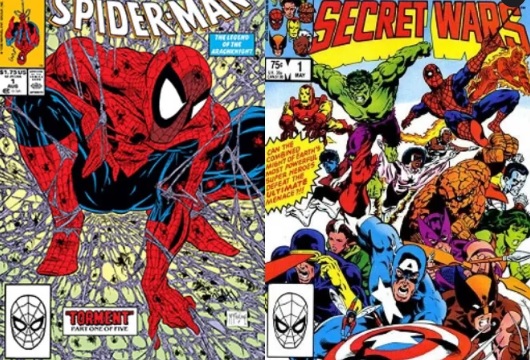Contents
- 1 Marvel Comics: A Comprehensive Overview
- 1.1 The Birth of Marvel Comics
- 1.2 Navigating Through Time
- 1.3 Marvel Comics Growth and Challenges
- 1.4 The Marvel Cinematic Universe
- 1.5 The Popular Marvel Characters
- 1.6 Cultural Significance
- 1.7 The Current Landscape of Marvel Comics
- 1.8 Conclusion
- 1.9 Similar Story you may also like it
- 1.10 Spiderman super hit movies:
- 1.11 Common Problem Solving blogs:
- 1.12 How to Series
Marvel Comics: A Comprehensive Overview
Marvel Comics has become a monumental name in the world of entertainment, known for its incredible stories, memorable characters, and significant influence on pop culture. This article delves into the history of Marvel Comics, explores its most popular characters, examines its cultural impact, and shares the latest news and developments.
The Birth of Marvel Comics
Origins and Founding
Marvel Comics began its journey in 1939, founded by Martin Goodman under the name Timely Publications. At that time, the comic book industry was still in its early stages, but Goodman saw potential in this medium. The first-ever Marvel comics featured characters like The Human Torch and Submariner. The initial success was astounding, with 900,000 copies sold in just two months1.
The Golden Age of Comics
The early 1940s marked the Golden Age of comics, a period characterized by the emergence of iconic superheroes. Captain America made his first appearance in 1941, quickly becoming a national symbol during World War II. He fought against Nazi villains, representing American values like freedom and justice1. This era solidified comic books as a vital form of entertainment and an influential medium in American culture.
The Transition to Marvel Comics
In the 1960s, Timely Publications began to transition into what we now know as Marvel Comics. Under the creative direction of Stan Lee, Jack Kirby, and Steve Ditko, characters like the Fantastic Four, Spider-Man, and the X-Men were introduced. These heroes had relatable flaws and complex personalities, which appealed to a more mature audience1. This change distinguished Marvel from its competitors and helped forge a unique identity in the comic book market.
The Silver Age and Beyond
The 1960s is often viewed as the Silver Age of comics. During this time, Marvel Comics expanded its universe, adding superheroes that embodied both extraordinary powers and human issues. The X-Men, created as an allegory for civil rights struggles, encouraged acceptance and diversity. Characters like Spider-Man infused themes of responsibility and morality, resonating deeply with readers1.
Marvel Comics Growth and Challenges
The 1980s: A Resurgence
The 1980s brought a resurgence for Marvel Comics, with the introduction of legendary artists and storytellers who redefined comic book artistry. This decade saw significant sales, with notable characters like Spider-Man experiencing heightened popularity. However, the industry faced challenges towards the end of the century, culminating in the infamous comic book crash of 1996, which forced Marvel to file for bankruptcy1.
Rising from the Ashes
Despite facing financial troubles, Marvel emerged from bankruptcy by diversifying its offerings. The company launched multiple imprints aimed at different demographics and ventured into the world of movies, starting with the production of films featuring its iconic characters. This strategy would eventually lead to the formation of the Marvel Cinematic Universe (MCU) in the late 2000s, heralding a new era of success and popularity for Marvel Comics1.
The Marvel Cinematic Universe
Expanding the Marvel Universe
The MCU began with the release of “Iron Man” in 2008. This film set the foundation for a series of interconnected movies, creating a sprawling cinematic universe that engaged audiences worldwide. Characters like Iron Man, Captain America, Thor, and the Avengers became global icons, further elevating Marvel Comics’ status in the entertainment industry12.
Cultural Phenomenon
The success of the MCU is unparalleled, generating massive box office revenues and creating a fervent fanbase. This phenomenon redefined the superhero genre in film and ignited interest in comic books. Marvel Comics and its characters became ingrained in pop culture, influencing everything from merchandise to fashion, and even language2.
The Popular Marvel Characters
Iconic Heroes
Spider-Man: Often regarded as Marvel’s most popular character, Spider-Man has captured the hearts of millions. Created by Stan Lee and Steve Ditko, Spider-Man’s narrative centers around a young man, Peter Parker, who wrestles with the responsibilities that come with his powers. His mission to protect his city while grappling with personal struggles resonates widely2.
Captain America: As a symbol of patriotism and bravery, Captain America debuted during World War II. His character embodies the ideals of justice and freedom. Steve Rogers, the man behind the mask, is known for his leadership skills and unmatched bravery12.
Iron Man: Once a lesser-known character, Iron Man rose to prominence after being portrayed by Robert Downey Jr. in the MCU. His journey from a wealthy industrialist to a self-sacrificing hero has made him a fan-favorite2.
The X-Men: The X-Men comics tackle themes of discrimination and acceptance, making them incredibly relevant to social issues. This team of mutants, often facing prejudice due to their abilities, has become a powerful metaphor for real-life struggles against oppression2.
Villains of Marvel
Thanos: As one of the most recognized villains in the Marvel universe, Thanos gained fame through the “Infinity Saga” in the MCU. His quest for the Infinity Stones and his ideology raised philosophical questions about power and sacrifice2.
Magneto: Magneto, from the X-Men series, is a complex character with a tragic backstory. His motivations stem from the pain of discrimination, making him a compelling villain who challenges the boundaries of morality2.
Cultural Significance
The Reflective Power of Comics
Marvel Comics has played a crucial role in reflecting societal issues. For example, the X-Men’s storylines highlight the importance of tolerance, acceptance, and understanding, drawing parallels to real-world civil rights movements. Through engaging narratives, Marvel has opened discussions on prejudice, representation, and diversity24.
Addressing Modern Issues
In recent years, Marvel Comics has made significant strides in representing various social issues, including mental health, LGBTQ+ rights, and racial equality. Characters like Ms. Marvel and Black Panther provide voices for marginalized communities, ensuring their experiences and struggles are recognized2.
The Current Landscape of Marvel Comics
Latest Releases and Events
As of now, Marvel Comics is witnessing exciting developments. The ongoing “Blood Hunt” event features vampires threatening the Marvel Universe. This compelling storyline engages readers with thrilling narratives intertwining various characters5.
Recent releases include the “Thanos Annual (2024)” comic, where Thanos embarks on a quest to find the Infinity Stones, facing unforeseen challenges. Additionally, comics like “Ultimate Black Panther (2024)” showcase T’Challa’s journey to reclaim Wakanda amidst a crisis5.
Future Directions
Marvel Comics continues to expand its universe through innovative storytelling and character development. The combination of classic narratives with modern issues ensures that the stories resonate with contemporary audiences while preserving their rich history. Fans eagerly anticipate future releases and the evolution of their beloved characters25.
Conclusion
Marvel Comics stands as a testament to the fascinating world of storytelling through its complex characters, engaging plots, and social relevance. From its humble beginnings to becoming a cultural phenomenon, Marvel has left an indelible mark on entertainment and society. As it continues to grow and adapt, Marvel Comics remains a vital part of the cultural landscape, inspiring generations and fostering discussions around important issues while thrilling fans with captivating stories. The journey of Marvel Comics is far from over, and the future holds endless potential in the ever-evolving world of superheroes.
Similar Story you may also like it
Spiderman super hit movies:
Spider-verse 2-Movie Collector’s Edition – Multi-Feature (4 Discs)
Super hit Movies of Iron man:
Common Problem Solving blogs:
Best Support for Hip Joint Pain
Fatty Liver Disease Drug: Live Pure
Are Teeth Bones: Unraveling the Mystery
2 hours of sun a day lowering blood sugar
Knowing Fat Burner —A Voyage to a Healthier You.
How to Series
How to Cancel Kindle Unlimited
How to Buy Bitcoin on eToro App
How to Deactivate Facebook: A Simple Guide for Everyone
How to Delete Instagram Account: A Simple Guide for Everyone
How to Screenshot on Windows: A Complete Guide for Everyone
How to Screenshot on Mac: A Complete Guide for Everyone
How to Change Your Name on Facebook
How to Block Someone on TikTok
How to Delete Your Facebook Account
How Long to Boil Corn on the Cob
How Long Does It Take to Get a Passport

